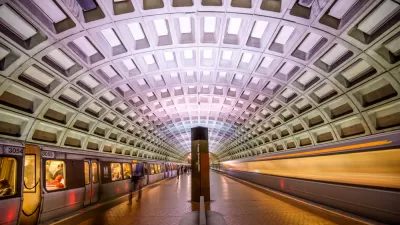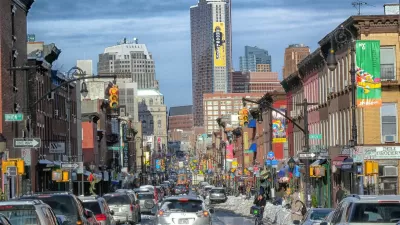In the early 1990s, transportation politics at both the state and federal levels was often fairly simple: an all-powerful Road Gang (made up of real estate developers and road contractors) typically got whatever it wanted, rolling over a much weaker pro-transit coalition of environmentalists and urban politicians.
In the early 1990s, transportation politics at both the state and federal levels was often fairly simple: an all-powerful Road Gang (made up of real estate developers and road contractors) typically got whatever it wanted, rolling over a much weaker pro-transit coalition of environmentalists and urban politicians.
But in the past year or so, I have noticed different sets of
alignments. At the federal level, road
and transit supporters alike rallied (mostly successfully) against a right-wing
attempt to cut all transportation spending.
And in my hometown of Atlanta,
road and transit lobbies both sought a regional tax increase for transportation,
which was defeated by a coalition including groups as diverse as Tea Party organizations,
the Sierra Club, and the NAACP.
Why are road and transit lobbies working together? And why can't they always win?
Since the 2008 financial crisis, the money for
transportation ran out - that is, the recession has reduced state and local
revenues, which means transportation lobbies often cannot get increased spending
without getting increased taxes. And at
the federal level, gas tax revenues are also stagnant. So neither the road nor the transit lobby can
get increased spending without raising revenue.
And when transportation lobbies ask for increased taxes,
they attract opposition from a third group: the anti-tax/spending coalition
that dominates Republican politics (if not American politics generally).
So we now have a three-cornered politics: roads vs. transit
vs. antitax/Tea Party. At the federal
level, the road and transit lobbies were able to pass a transportation bill,
but to do it they had to split the antitax Republican majority by limiting
spending increases to more or less the rate of inflation, and by sacrificing a
few smaller programs. In Atlanta, the road/transit
coalition failed because they were not unified.
The antitax coalition was able to split both the road and the transit
lobbies; pro-road suburbanites thought too much was going to transit, and
pro-transit voters thought too much was going to roads (or to transit in
another side of town).
So the lesson of 2012 is: neither the road lobby nor the transit
lobby can get very much on its own anymore.
They have to work together and even they may have to split the antitax
vote. Conversely, the antitax lobby can't
always win on its own either, but can win if it splits the other coalitions.

Alabama: Trump Terminates Settlements for Black Communities Harmed By Raw Sewage
Trump deemed the landmark civil rights agreement “illegal DEI and environmental justice policy.”

Study: Maui’s Plan to Convert Vacation Rentals to Long-Term Housing Could Cause Nearly $1 Billion Economic Loss
The plan would reduce visitor accommodation by 25% resulting in 1,900 jobs lost.

Planetizen Federal Action Tracker
A weekly monitor of how Trump’s orders and actions are impacting planners and planning in America.

Wind Energy on the Rise Despite Federal Policy Reversal
The Trump administration is revoking federal support for renewable energy, but demand for new projects continues unabated.

Passengers Flock to Caltrain After Electrification
The new electric trains are running faster and more reliably, leading to strong ridership growth on the Bay Area rail system.

Texas Churches Rally Behind ‘Yes in God’s Back Yard’ Legislation
Religious leaders want the state to reduce zoning regulations to streamline leasing church-owned land to housing developers.
Urban Design for Planners 1: Software Tools
This six-course series explores essential urban design concepts using open source software and equips planners with the tools they need to participate fully in the urban design process.
Planning for Universal Design
Learn the tools for implementing Universal Design in planning regulations.
Caltrans
Smith Gee Studio
Institute for Housing and Urban Development Studies (IHS)
City of Grandview
Harvard GSD Executive Education
Toledo-Lucas County Plan Commissions
Salt Lake City
NYU Wagner Graduate School of Public Service





























